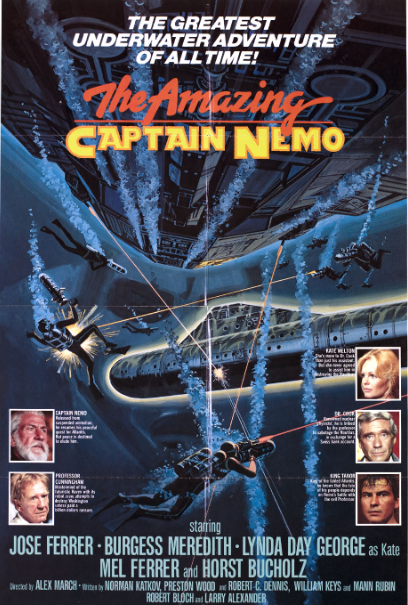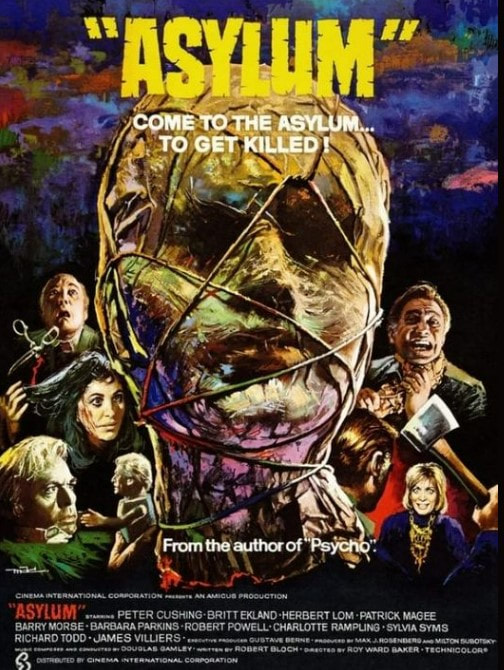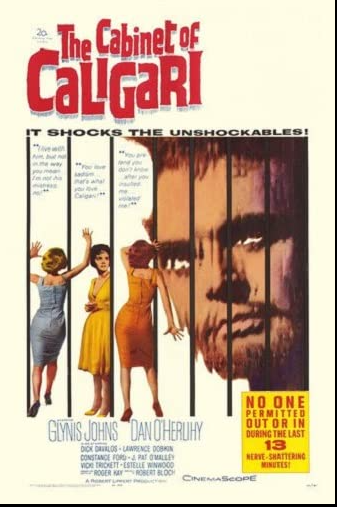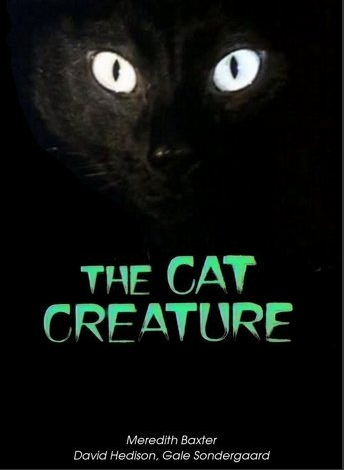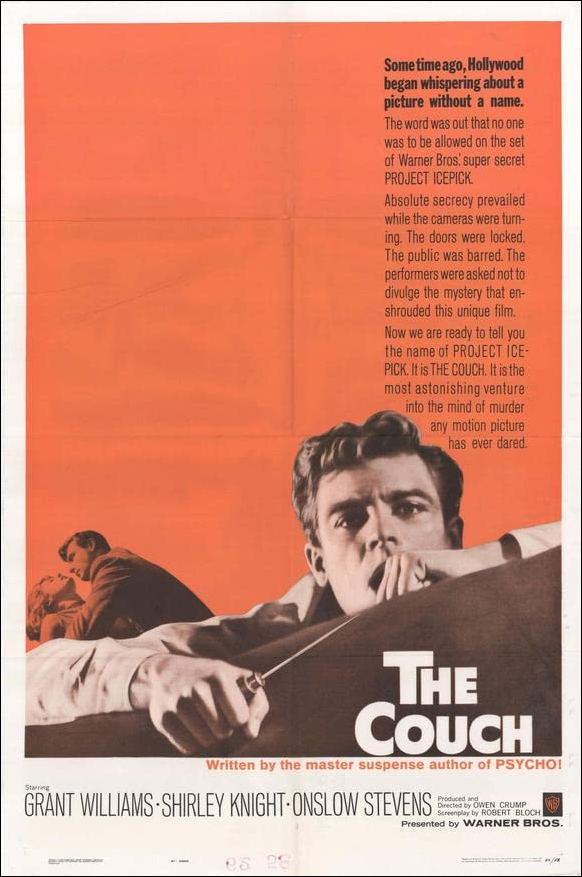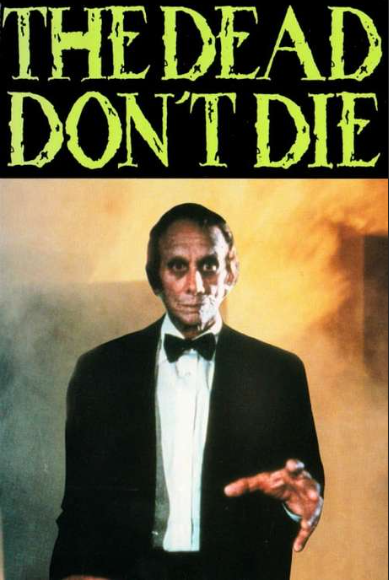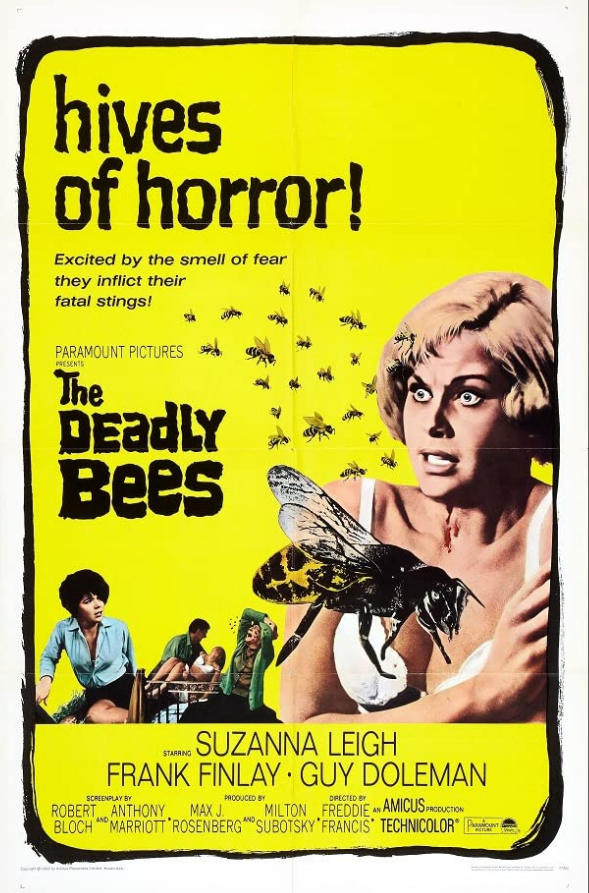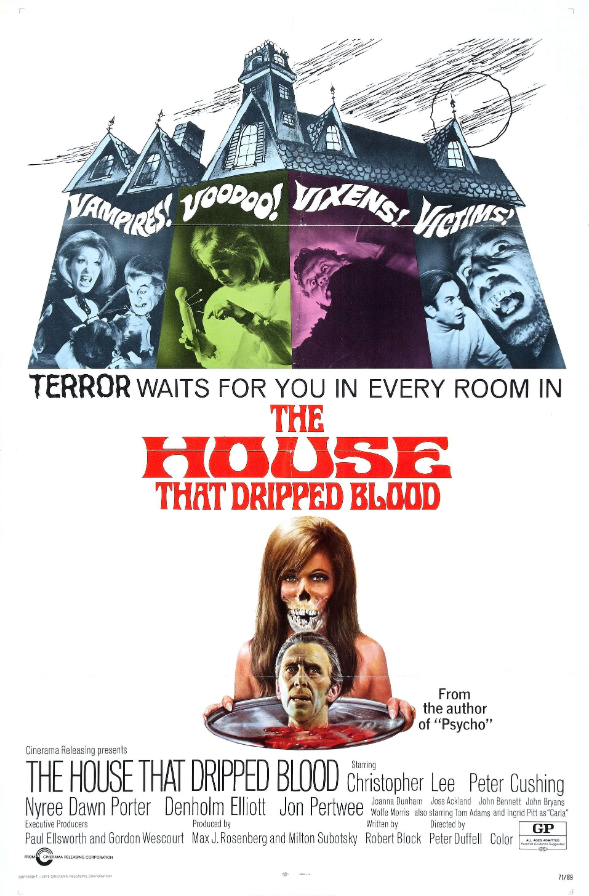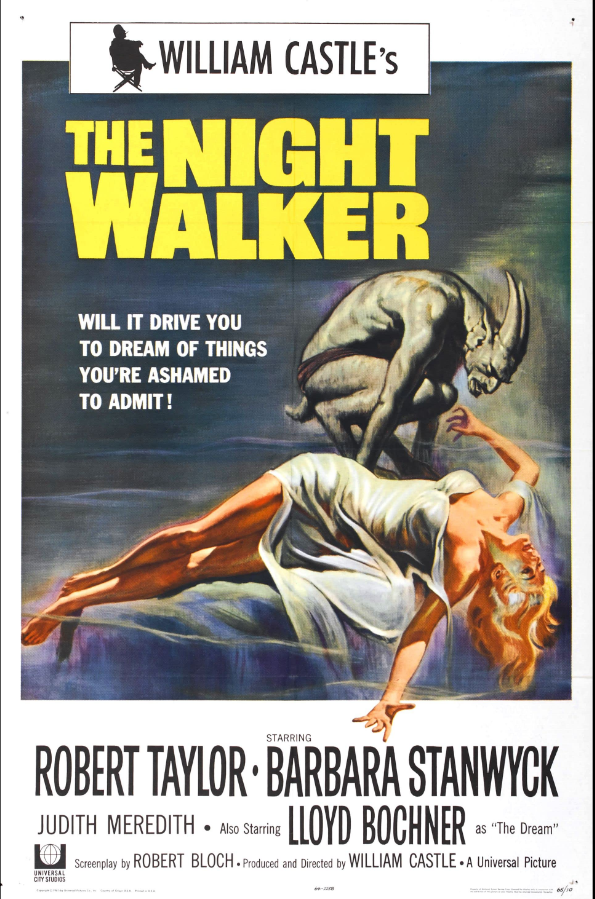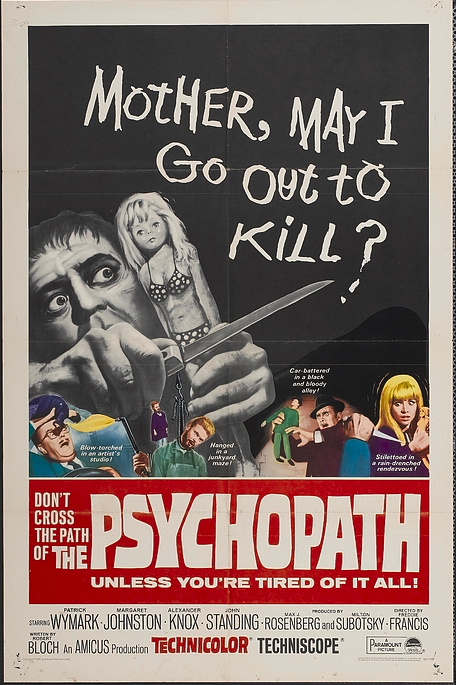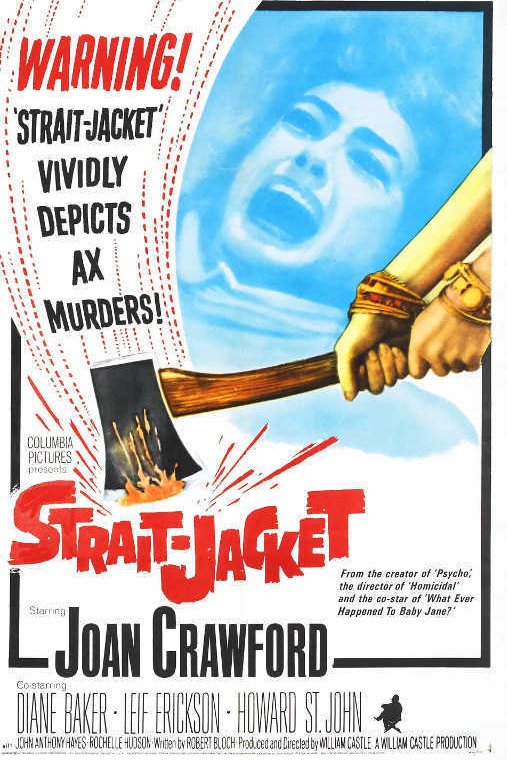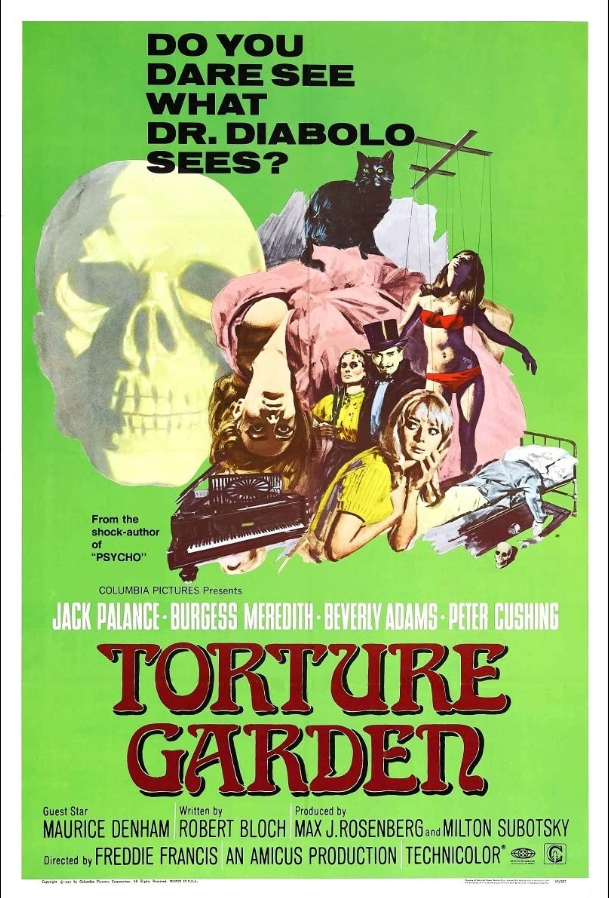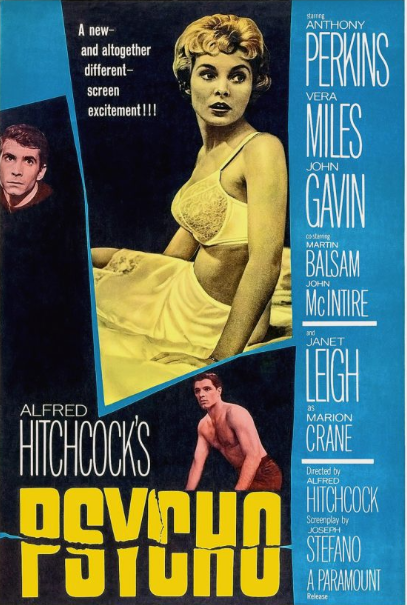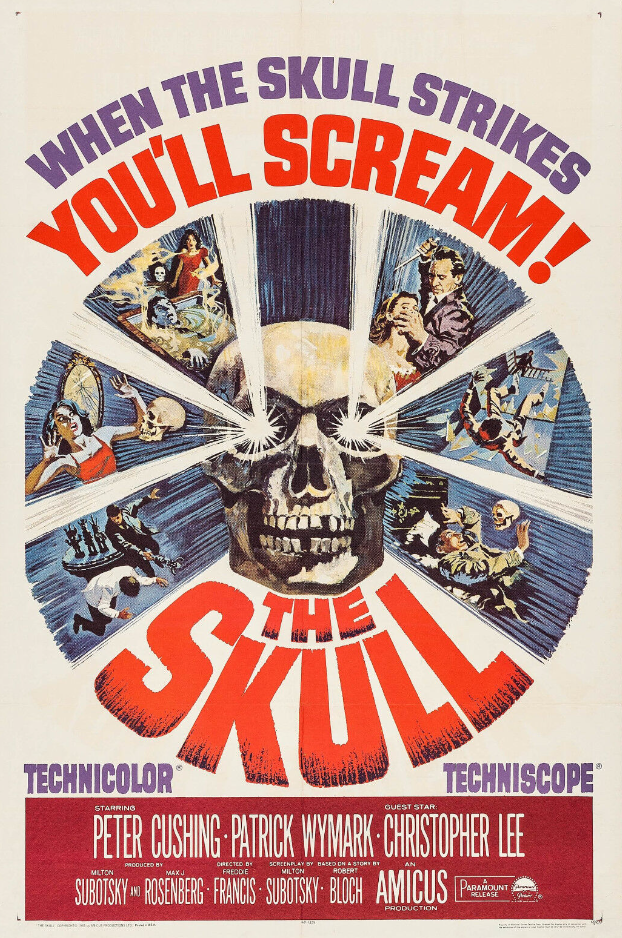Films
(Hover over/click each poster for more)
(Hover over/click each poster for more)
Screenplays by others, based on Bloch source material.
Bloch’s entry into writing feature films came in 1962 when his agent procured the gig of writing the screenplay for The Couch. Based on a treatment by Blake “Breakfast at Tiffany’s” Edwards, the psychological horror film was much in line with Bloch’s novels of the 1950s, in that it explored the inner workings of a disturbed killer. Due to budgetary constrictions, much of what Bloch wanted to visualize on screen involving his main character’s hallucinations was cut, resulting in a static, dull affair that went nowhere and faded quickly. After writing the first draft for a proposed remake/reimagining of the silent classic, The Cabinet of Dr. Caligari, the film’s director, Roger Kay not only rewrote dialogue which destroyed Bloch’s finely crafted plot, but Kay also attempted to steal the writing credit as well. (He failed.)
Later that same year, Bloch was approached by William Castle, the B-movie director known for promotion of his films using elaborate gimmicks (in The House on Haunted Hill (1959) some theaters erected a pulley system near the theater screen which allowed a plastic skeleton to be flown over the audience; in The Tingler (1959), electrical "buzzers" were attached to the underside of some theater seats to provide "tingling" sensations during certain scenes). Writing toward the idea of a latter-day Lizzie Borden-type axe murderess, Bloch wrote an original script for what became Strait-Jacket. A huge boon for all concerned came when legendary Oscar-winner Joan Crawford agreed to star. Released in 1964, the film was panned by many critics, but was a considerable box-office hit.
Obviously happy with the result of their collaboration, Castle again turned to Bloch to write The Night Walker, another psychological thriller, this time starring Barbara Stanwyck (Stella Dallas, The Big Valley) in her final film role. Receiving mixed reviews, Walker did not match the success of its predecessor, and Castle and Bloch would not collaborate again.
In 1965, Bloch was approached by producers Milton Subotsky and Max Rosenberg, recent founders of the British film production company, Amicus, to pen a film that became The Psychopath. While this film and a subsequent assignment, The Deadly Bees, adapted from Gerald Heard’s A Taste for Honey, went nowhere at the box-office, these films led to an extended and successful collaboration with Subotsky and Rosenberg. In 1967, the pair released Torture Garden, a horror anthology film whose four Bloch-scripted adaptations of his own stories are connected by a framing story. The film was a success and so the producers looked to the author to repeat the formula with two subsequent releases, The House That Dripped Blood (1970) and Asylum (1972). While both films were sizeable hits, regrettably the latter film proved to be Bloch’s last produced film screenplay.
Later that same year, Bloch was approached by William Castle, the B-movie director known for promotion of his films using elaborate gimmicks (in The House on Haunted Hill (1959) some theaters erected a pulley system near the theater screen which allowed a plastic skeleton to be flown over the audience; in The Tingler (1959), electrical "buzzers" were attached to the underside of some theater seats to provide "tingling" sensations during certain scenes). Writing toward the idea of a latter-day Lizzie Borden-type axe murderess, Bloch wrote an original script for what became Strait-Jacket. A huge boon for all concerned came when legendary Oscar-winner Joan Crawford agreed to star. Released in 1964, the film was panned by many critics, but was a considerable box-office hit.
Obviously happy with the result of their collaboration, Castle again turned to Bloch to write The Night Walker, another psychological thriller, this time starring Barbara Stanwyck (Stella Dallas, The Big Valley) in her final film role. Receiving mixed reviews, Walker did not match the success of its predecessor, and Castle and Bloch would not collaborate again.
In 1965, Bloch was approached by producers Milton Subotsky and Max Rosenberg, recent founders of the British film production company, Amicus, to pen a film that became The Psychopath. While this film and a subsequent assignment, The Deadly Bees, adapted from Gerald Heard’s A Taste for Honey, went nowhere at the box-office, these films led to an extended and successful collaboration with Subotsky and Rosenberg. In 1967, the pair released Torture Garden, a horror anthology film whose four Bloch-scripted adaptations of his own stories are connected by a framing story. The film was a success and so the producers looked to the author to repeat the formula with two subsequent releases, The House That Dripped Blood (1970) and Asylum (1972). While both films were sizeable hits, regrettably the latter film proved to be Bloch’s last produced film screenplay.
